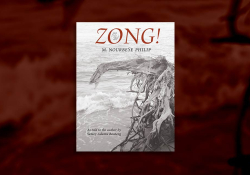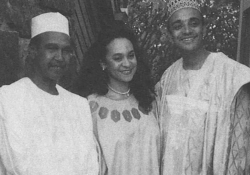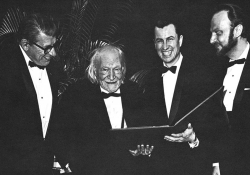Lawyers “Going Crazy” with Language

As a criminal defense lawyer with a sometime focus on capital defense who has published fiction and poetry, your issue focused on law-inspired literature was particularly gratifying. I was amazed to learn that every defender’s hero, Clarence Darrow, was the law partner of Edgar Lee Masters. I had never read Masters because I assumed he was one of the rather oracular icons of American literature, about as interesting to me as, say, Alfred Lord Tennyson. I was so wrong. His poetry was powerful and relevant, containing the testimony and the affidavit of the soldier and the Chinese immigrant in a brilliant fusion of left and right brain. Masters is as modern now as he was in 1920.
My own story, “The Terrible Beauty of Angels,” published in my collection The Coyotes Forgive You, involves the idiocy of legal procedure and policy when applied to a wild rebel tribe of people in Oklahoma in the distant future, and the retribution a judge incurs at the hands of a fierce but well-educated Oklahoma shaman. Law is seldom the hero in literature. Even hard-boiled fiction cops look cynically at courts and the law. There are many ways in which interaction with the law can go beyond genre fiction—though I confess a deeper admiration for detective fiction than most, which puts me as J. Madison Davis’s soul brother. I always enjoy his columns, and especially enjoyed this month’s article on Perry Mason—I grew up watching him kick Hamilton Burger’s derrière.
There have been many excellent courtroom dramas. But ultimately I still prefer the balance writers like Chaucer and García Lorca, both trained lawyers, brought to literature. The courthouse is almost never a happy destination, adoptions and marriages being the exception. Exposure to the criminal justice system provides an insight into contrast and conflict that only a few other professions—soldiers and social workers, for example—can match. It is no surprise that lawyers like Wallace Stevens turned to poetry and found a balance in vivid imagery and metaphysical abstraction blended into a rich symbiosis. Stevens was one of those “John M. Church” lawyers Masters excoriated. He was vice-president of The Hartford most of his working life, but his poetry was incredible and infused his imagination with the necessary angel of logic, somehow.
I also hope readers remember the amazing dialogue novel A Frolic of His Own by the late William Gaddis. It was the last of his four novels and was his second National Book Award winner. The only variations from dialogue, for the most part, were mock legal opinions whose easy legalese thinly masked tremendous judicial wit and humanity. The title comes from the 1834 British case Joel v. Morison, where a man was run over by a horse cart driven by the employee of Morison. The issue was whether Morison was liable for his employee’s negligence when the employee had diverged from his route to see a friend. The court held Morison was liable because even though the driver took an unauthorized detour, he was still driving the cart for Morison. The entire novel focuses on vicarious liabilities of one sort or another.
Thanks to Martín Espada for his own excellent poetry and for a revealing historical perspective on lawyers as poets. I personally welcome the chance to “go crazy” with words after spending my day writing analytical paragraphs. The intensity of legal briefs creates a countersurge of imagination as a near survival mechanism.




